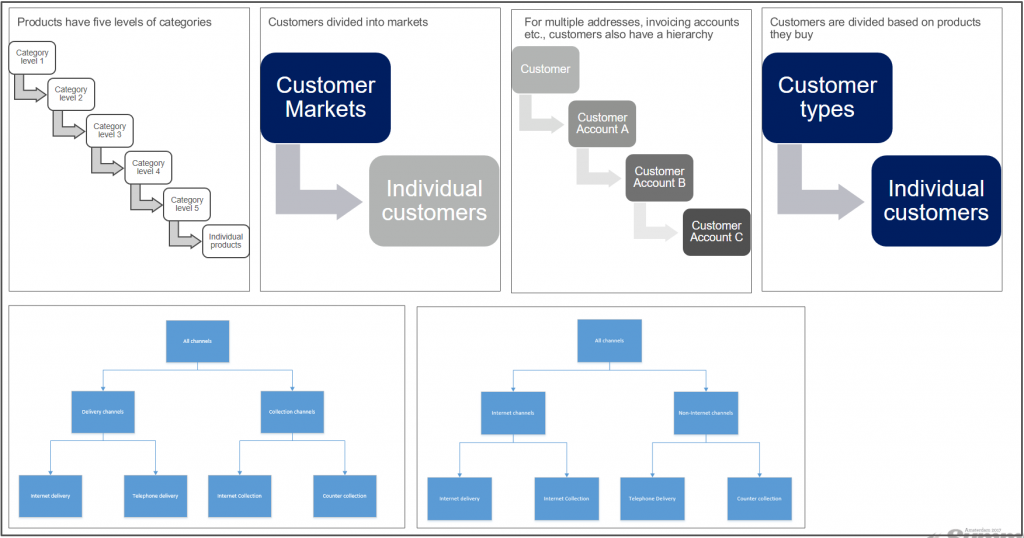KYC - Basic description of example company
Ok, a lot about setting the stage; let’s do it.
First a little bit about our example company. Here it is. Contoso Groceries UK, about $500m business. They procure and then distribute various grocery items to other smaller businesses who could be smaller groceries themselves or restaurants of various types or event caterers or even public institutions like hospitals, schools & the like. Customers order through online channels or through call-centers or sometimes walk-ins. Product is delivered through Contoso owned lorries or customers drop by to collect themselves.
Products
About 10,000 products are divided into about 20 categories for easy management.
Customers
- About 100,000 customers buy in any given year, some just once, others many times
- Customers are divided into 20 different markets for easy management
- Customers are also divided into customer types depending on products they buy
- Customer accounts themselves are ordered in a hierarchy since many customers use different accounts to order based on sites they order from, or their own ownership structure etc.
Sites
Products are stored and sold from 15 different large warehouses (or sites) in various places in UK.
Channels
1. There are many channels however, the ones used most often are of two types – (1) internet or (2) non-internet
2. The channels could also be thought of in terms of (1) delivery and (2) collection channels as in a traditional cash-and-carry operation
Volume of transactions
Contoso processes about 10,000 sales orders with 10-20 lines each 360 days’ a year
Operations velocity
Most orders can be collected or delivered next day
For this analysis, we have excluded some portion of sales data to keep Contoso’s financial information confidential. 
There are nuances to this business but what you learn here (if we are successful in communicating), you can apply to any distribution operation whether it is within retail, manufacturing or distribution industry. The most necessary ingredient without which such analysis cannot be done is ‘reliable data’. Contoso uses Dynamics AX2012 R3 as single source of truth for this part of their operation and have standardized over the years so when we started working with this customer we had good data to start with. Which ERP or system the data comes from doesn't matter as long as it is good quality reliable data.